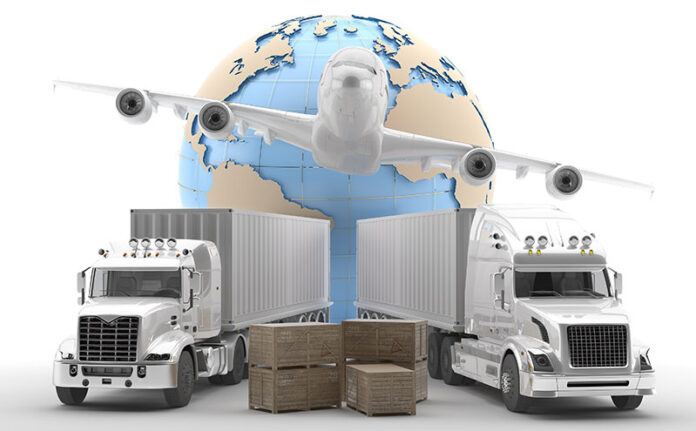Since their early days, transportation management systems have come a long way when planning, tracking, and reporting involved nothing more than a pencil and paper. Nowadays, these systems offer many advantages over the old way of doing things, including far more efficient planning and overall efficiency. Plus, modern transportation management systems can help you improve your customer service and lower your costs at the same time! They have become indispensable for operators like specialist logistics Swire shipping in today’s global commerce.
What are Transport Management Systems?
Transport management systems (TMS) track, monitor, and manage aspects of logistics and transport for a business, from vehicle movement and cargo information to staff time and payroll data. By digitizing physical freight processes, TMS creates efficiencies for businesses.
TMS are deployed by most major shipping companies and logistics providers and have been used for more than a decade. However, there is still room for improvement in certain areas. What has shaped TMS into what it is today?
1. Real-time Tracking
Today, TMS rely on GPS and RFID chips to monitor vehicle and goods movement. Real-time tracking offers huge advantages over traditional transportation management methods, as it allows companies to be proactive in their approach to routing vehicles.
For example, a company that uses real-time data may find that its drivers are spending too much time at a certain location or that its shipments need rerouting due to bad weather conditions. With real-time data, companies can make changes immediately and avoid any potential issues down the road.
2. Integration of Small Parcel Shipping
Businesses today have to deal with the reality that customers sometimes want one or two units. The adoption of direct factory-to-doorstep channels has enforced this. A robust TMS must provide for shipping small parcels. Integrating small parcel shipping offers unique advantages, including
• Reduction in shipping costs by eliminating intermediary carriers.
• Faster delivery of smaller shipments.
• Reduced handling and increased control over shipment information.
• Elimination of order splitting for expedited shipments.
• Increased customer satisfaction due to faster delivery of orders containing only one or two items.
3. Optimized Returns Management
Any business that cares about customer satisfaction must have a responsive and effective returns management system to handle returned goods. TMS integrate and optimizes these returns management systems into their operations, providing their customers with superior service and support. To maximize returns management performance, companies need to ensure that they are using all available technologies to streamline processes and increase efficiency.
It integrates other technology like enterprise resource planning (ERP) solutions, and supply chain and management (SCM) software. These tools provide businesses with an integrated platform for managing customer relationships through one central hub, which is especially important for handling returns efficiently.
4. Omnichannel Shipping Management
eCommerce disrupted traditional shipping. Today, operations like specialist logistics Swire shipping handle omnichannel shipping. These channels include:
- Warehouse to consumer and back where a warehouse is used as a drop off point for packages that are then delivered directly to consumers by carriers
- Supplier to consumer and back where suppliers deliver goods directly to consumers using their own trucks.
- Store to consumer and back where retailers use their own trucks to deliver goods from their warehouses directly to customers’ homes, and
- Distribution center to consumer and back where goods are shipped directly from a distribution center to consumers
A TMS will integrate omnichannel shipping management to make it easier for shippers to manage these shipping channels seamlessly.
5. Embedded Integration 3PL Technology
This shift towards software as a service (SaaS) has evolved from enterprise applications and technology previously only available to larger businesses. Now transportation management systems can be accessed anywhere, making them accessible for users of all sizes.
Transport companies are also integrating their technologies with other functional areas like eCommerce for seamless integration of online orders and fleet management apps for increased efficiency. Industry cloud providers offer TMS systems that allow any business in logistics to benefit from systems customized specifically for their particular needs and freight rates.
Reliance on Big Data for Higher Efficiency
The next generation of TMS solutions will be built on big data. The enormous amount of information generated by mobile and fixed assets, driver behavior, traffic patterns, weather reports, and more must be analyzed to develop a comprehensive transportation plan.
Today’s TMS helps organize all of that disparate data into a single source that can be accessed from anywhere, at any time. This opens up new possibilities for routing drivers through less congested areas or identifying slowdowns ahead of time.
Conclusion
Today, it’s easier than ever to ship items on platforms that manage every shipment step from start to finish. The evolution of technology and transportation management systems is helping business owners save money while reducing inefficiencies. In today’s competitive market, specialist logistics Swire shipping can help your company stay ahead of its competitors with quick and effective shipping.






























































